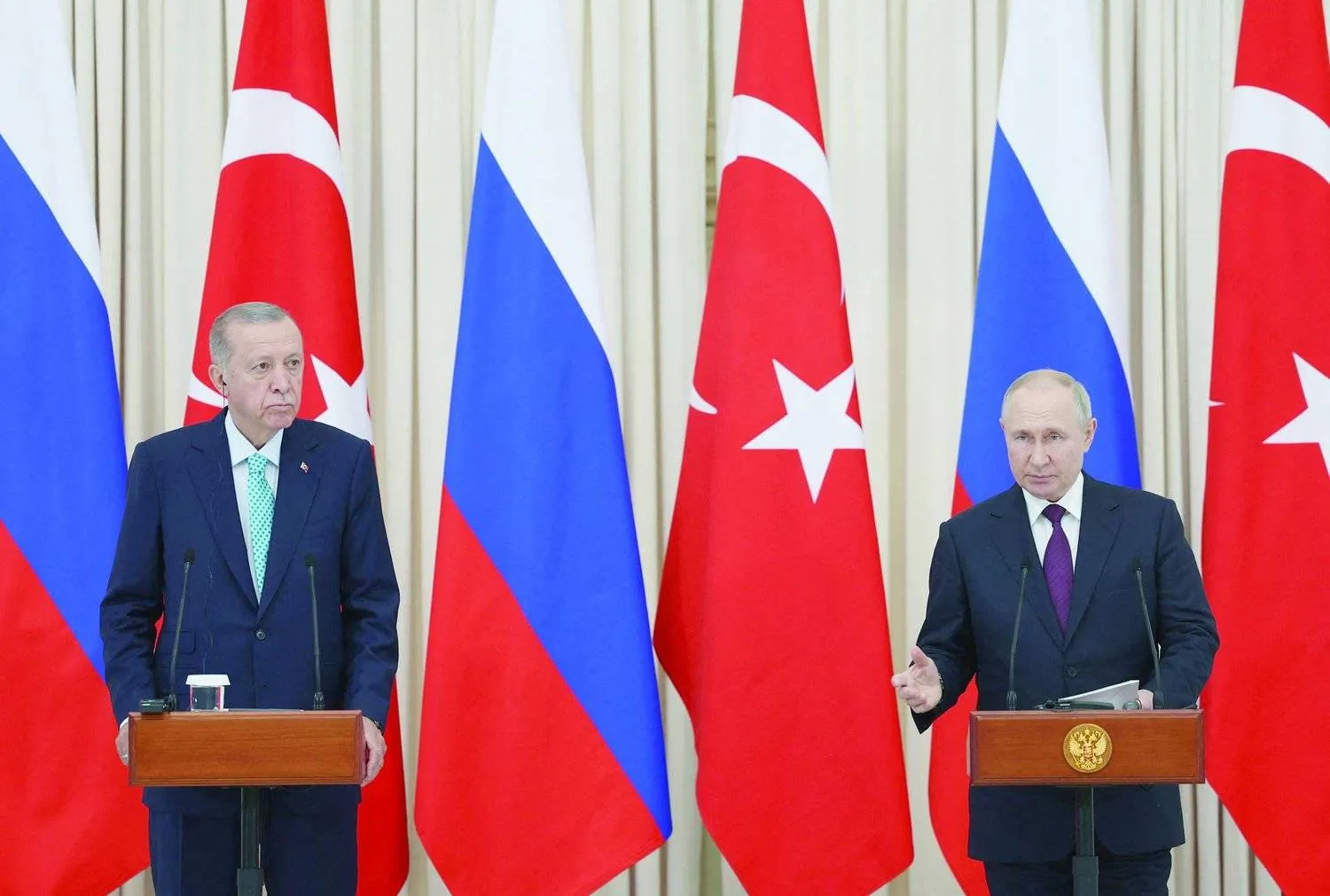Statements made by Turkish President Recep Tayyip Erdogan, after the summit that brought him together with his Russian counterpart, Vladimir Putin, in Sochi on Monday, reflected obstructions to the normalization of relations between Damascus and Ankara.
The Turkish President harshly criticized his Syrian counterpart, Bashar al-Assad, and blamed him for not achieving progress in the path of normalization, which is sponsored by Moscow, with the participation of Tehran.
Erdogan told reporters on his way back from Sochi that Assad was “watching the steps taken in the Türkiye-Russia-Iran-Syria format regarding normalization from afar.”
“In other words, he does not take part in the work. We, on the other hand, opened our doors to these efforts... However, there is still no positive attitude on the Syrian side,” he said.
The Turkish president was also cited as saying normalization was possible if there was progress on the fight against terrorism, on the safe and voluntary return of refugees and on the political process.
“The fight against terrorism, the political process, and the safe, voluntary, and dignified return of refugees are being discussed comprehensively at the quartet foreign ministers’ meeting. If progress is made in this way, normalization of relations with the Syrian regime is also possible,” Erdogan added.
There has been a stalemate in the process of normalizing relations between Türkiye and Syria since the last meetings of their deputy foreign ministers with their Russian and Iranian counterparts, on the sidelines of the 20th meeting of the Astana track on June 20-21.
Damascus has insisted on the withdrawal of Turkish forces from northern Syria as a condition for starting any normalization steps, while Ankara declared that this was a red line, claiming that the Syrian army was unable to guarantee border security and prevent terrorist threats against Türkiye.









